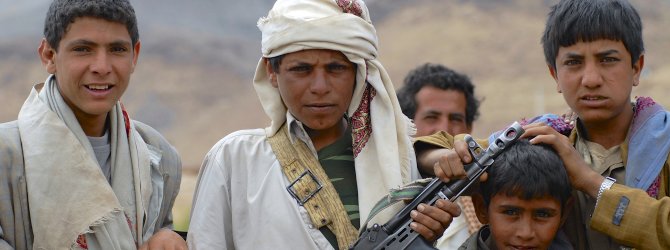-
The Need for a New Strategy to Counter Violent Extremism ...
The Need for a New Strategy to Counter Violent Extremism in the WANA Region

Over the past few years, violent extremism has ascended as the most perplexing security threat of present times. There is wide agreement on the need to prevent and counter violent extremism, but the question of how is not so easily answered. Current efforts range from comprehensive programs that focus on building resilience and creating an alternate narrative to joining violent extremist groups (preventively) through military responses (in eventu) to counselling services for families and friends of recruits and rehabilitation programs that help reintegrate returnees (post eventum).
However, while all these programs exist, most lack an evidence-based approach in support of their implementation. Moreover, there is a lack of monitoring and evaluation to understand how – if at all – such responses have led to a reduction in recruitment or violent acts.
The region’s specific political and social dynamics, coupled with its history of protracted conflicts, suggest a need for new modalities that can address this dynamic threat. Clearly, there is a need to develop a new Countering Violent Extremism (CVE) strategy; one that is tailored to the WANA region.
The problem with current CVE strategies is the almost exclusive focus on violent extremist groups’ religious dimensions, while ignoring other push and pull factors. Certainly, some individuals seem ideologically driven to join violent extremist groups – sometimes on the basis of philosophical belief-sets or a confused understanding of religion. But many others join to promote political and social change, from a belief that they can protect their family by joining the fight, or to escape an environment with limited opportunity for social or economic progress.
Violent extremist groups provide marginalized communities with an inclusive alternative in response to political and economic grievances. For others, adventure is the dominant pull factor. Unless new and inclusive policies addressing the socioeconomic and political drivers are implemented, efforts to create an environment less conducive to join violent extremist groups will fail.
While an inclusive CVE strategy should comprise tightened security, improved intelligence gathering, and strict law enforcement, such measures alone are inadequate. The state-centric, security-focused nature of CVE efforts globally, the WANA region included, is making it more difficult to enable community leaders and civil society-led initiatives to partake in building resilience. Impactful CVE efforts must build on and be tailored to local actors’ knowledge of their communities, and involve them. These local actors play a critical role in identifying early stages of radicalization, and can help manage threats before they become more difficult to contain.
Most importantly, CVE efforts in the WANA region must target individuals at all stages on the radicalisation spectrum. This involves a sophisticated understanding of the mind-set of radicalised individuals. Belonging to a certain religion, race, socio-economic group or nationality does not dictate susceptibility; there are no radicalised communities, only radicalised individuals, with a number of different push and pull factors affecting different individuals to varying extents and in dynamic ways. And the community – state and non-state actors – must have offers at hand to people ‘at risk’. They must be provided with an alternative to violence and substantive support to integrate back into Jordanian society.
To build a comprehensive understanding of which factors are in play, strategies must look beyond ideological drivers, to examine psychological drivers, socioeconomic and political conditions, educational curriculums, the role of preachers, and even the use of social media as a recruitment hub.
Over the next three years, the WANA Institute will be doing just this. Working in partnership with the EU, GIZ and the Dutch government, we are developing an empirical evidence base on the drivers of radicalisation using an innovative journey mapping methodology. This research will also include a curriculum review, social media analysis, and an examination of human security programming in Jordan, Lebanon, Egypt, and Tunisia. The evidence base forged will inform the development of programmatic actions to prevent radicalism from turning violent, and craft policy recommendations to improve human security in the region.
Every decent military strategist knows that defeating the enemy requires knowledge of that enemy. The threat of violent extremism is not properly understood, and countermeasures are often based on assumptions. The need for a tailored and evidence-driven CVE strategy in the WANA region is clear, but research on violent extremism is the first crucial battle on the path to defeat it.

